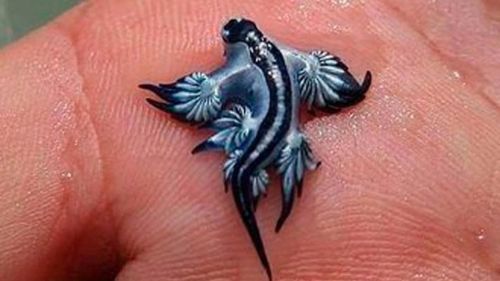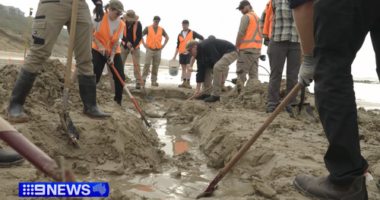Share this @internewscast.com
Due to the presence “of the blue dragon (Glaucus atlanticus), and for the safety of the citizens, we have prohibited swimming on all municipal beaches until further notice,” stated the Guardamar police force in a Facebook post on Wednesday.
The blue dragon, aptly named for its resemblance to mythical creatures, grows to about 3 centimeters long. It preys on venomous animals like the Portuguese man o’ war, recycling and concentrating that venom to paralyze prey up to 300 times its own size.

”Contact with this marine creature can be harmful and result in painful skin burns,” police advised, urging beachgoers to exercise extreme caution and avoid direct contact with any specimens they find on the sand.”
By Thursday, the ban had been lifted and swimming was allowed, but authorities still urged caution.
The town’s mayor, José Luis Sáez, urged the public to alert the authorities if they spot one of these creatures and to refrain from touching them, even with gloves.

He advised anyone getting stung to rinse the affected area with saltwater and seek medical attention.
With its sunny climate, rocky cliffs and plethora of beaches, the Mediterranean coastline surrounding Alicante is one of Spain’s tourist hotspots.
Blue dragons are infrequently observed in the Mediterranean, more commonly found in the temperate and tropical waters of the Atlantic, Pacific, and Indian Oceans, where they are carried by ocean currents and winds.












